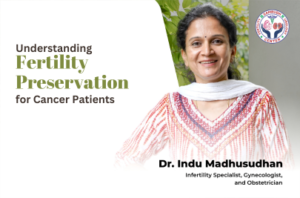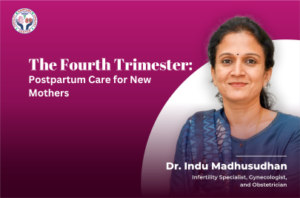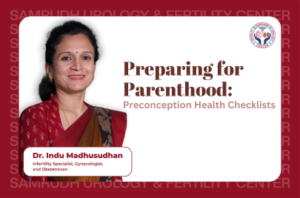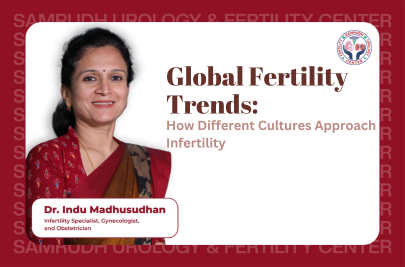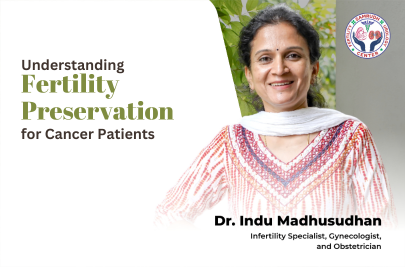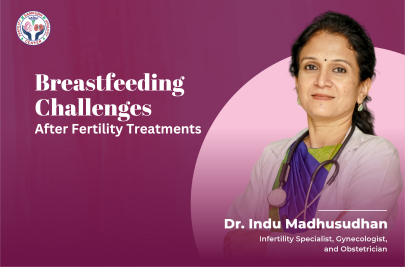The Importance of Fertility Preservation in the Face of Cancer
A cancer diagnosis is life-changing, and the treatment process can often feel overwhelming. One aspect of cancer treatment that is sometimes overlooked is its potential impact on fertility. Many cancer treatments, such as chemotherapy and radiation, can affect the reproductive organs, potentially leading to infertility. However, modern medicine offers options for fertility preservation, allowing individuals to protect their ability to have biological children in the future.
At Samrudh Fertility and Urology Centre, located in Kumaraswamy Layout, Bangalore, Dr. Indu Madhusudan and her expert team provide compassionate care to cancer patients considering fertility preservation before undergoing treatment. With a deep understanding of both fertility and oncology, the center helps patients navigate this crucial step in their cancer care journey.
Why Fertility Preservation Matters
Cancer treatments like chemotherapy, radiation, and surgery can cause permanent damage to the ovaries or sperm, leading to infertility. For women, treatments that impact ovarian function can cause premature ovarian failure (early menopause), while men may experience a significant reduction in sperm count or quality due to the effects of chemotherapy or radiation.
Fertility preservation allows individuals to take proactive steps to safeguard their reproductive health before embarking on cancer treatment. It provides the opportunity for future family-building options, giving patients peace of mind during what is already a difficult time.
Methods of Fertility Preservation
1. For Women: Egg and Embryo Freezing
- Egg Freezing: This process involves stimulating the ovaries to produce multiple eggs, which are then harvested and frozen for future use. It is the most commonly used method for women who are about to undergo cancer treatment. For those who have a partner or intend to use a sperm donor, embryo freezing can also be an option. In this case, eggs are fertilized with sperm before being frozen.
- Ovarian Tissue Freezing: For women who need to begin cancer treatment quickly and do not have the time for egg stimulation, ovarian tissue freezing may be an option. The ovarian tissue is removed and frozen for future use. It can later be re-implanted to restore ovarian function.
- Hormonal Therapy: For women whose cancer is not hormone-sensitive, some might use hormonal therapy to temporarily shut down the ovaries during chemotherapy to preserve their fertility.
2. For Men: Sperm Banking
- Sperm Banking: Men diagnosed with cancer are often able to freeze their sperm prior to undergoing treatment. The sperm is then preserved in a sperm bank for future use during assisted reproductive procedures like intrauterine insemination (IUI) or IVF. This method is widely accessible and can be done quickly, ensuring minimal delay before cancer treatment begins.
3. For Transgender Individuals: Fertility Preservation Options
- For transgender individuals who may undergo hormone therapy or gender-affirming surgeries, fertility preservation is an important consideration. In many cases, egg freezing for transgender women and sperm banking for transgender men can be part of a comprehensive plan for family-building in the future.
The Process of Fertility Preservation
The process of fertility preservation typically begins with a consultation with a fertility specialist who is experienced in working with cancer patients. The steps involved generally include:
1. Assessment of Fertility Potential
A fertility assessment is conducted to evaluate the patient’s current fertility status, which may include hormone testing and imaging to assess ovarian reserve for women or sperm analysis for men.
2. Personalized Treatment Plans
Based on the patient’s age, type of cancer, treatment plan, and desired family-building goals, the fertility specialist will recommend the most appropriate preservation method.
3. Pre-Treatment Fertility Preservation
For women, ovarian stimulation and egg retrieval may take 10-14 days. Men can usually provide a sperm sample for freezing in a matter of days. In certain cases, such as for women opting for ovarian tissue freezing, the process may be done in one day.
4. Ongoing Monitoring
Once the preservation method has been completed, patients are given the option of ongoing monitoring to ensure that the preserved eggs, embryos, or sperm remain viable for future use.
Factors to Consider When Deciding on Fertility Preservation
1. Timing
The most important factor in fertility preservation is timing. Many patients undergoing cancer treatment may need to start their treatment immediately, so fertility preservation options need to be considered as early as possible in the cancer diagnosis process.
2. Cancer Type and Treatment
Different cancers and treatment types may impact fertility in various ways. Chemotherapy and radiation are more likely to affect fertility, while surgeries may directly remove reproductive organs. Understanding how the specific treatment plan will affect fertility is crucial in deciding the right preservation option.
3. Age and Fertility Potential
For women, age plays a significant role in fertility preservation decisions. The quality and quantity of eggs decline with age, which is why fertility preservation is often recommended for younger patients. For men, fertility preservation is generally viable at any age, though sperm quality may decline with age.
4. Emotional and Financial Considerations
Fertility preservation can be emotionally and financially challenging. Many cancer patients are focused on their treatment and may feel overwhelmed by the added consideration of fertility. Additionally, fertility preservation treatments can be costly, and insurance coverage may vary. It is essential for patients to discuss their options thoroughly with their medical team and fertility specialists.
The Role of Samrudh Fertility and Urology Centre
At Samrudh Fertility and Urology Centre, Dr. Indu Madhusudan and her team are committed to providing compassionate care for cancer patients considering fertility preservation. The center offers state-of-the-art technology and personalized care, helping patients preserve their fertility and plan for their future family-building options. With over 22 years of experience, Dr. Madhusudan ensures that every patient receives the highest level of care throughout their journey.
Conclusion
Fertility preservation offers hope and peace of mind to cancer patients who wish to preserve their ability to have biological children after treatment. With advanced techniques and compassionate care, options like egg freezing, sperm banking, and ovarian tissue freezing can help individuals protect their reproductive future. At Samrudh Fertility and Urology Centre, patients have access to world-class fertility preservation services, ensuring the best possible outcomes as they navigate both cancer treatment and family planning.


